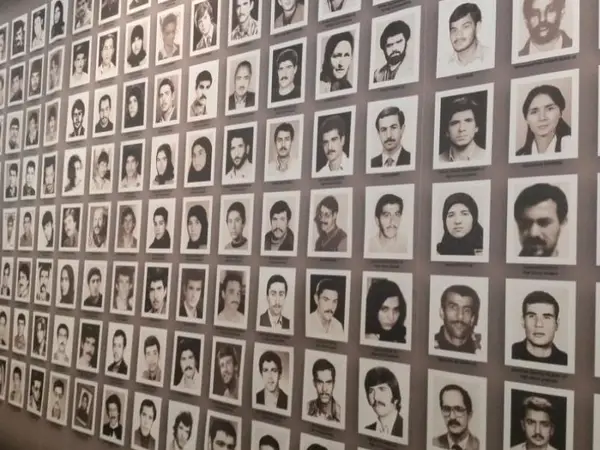A witness in the Swedish trial of an Iranian over his alleged role in 1988 prison executions has named President Ebrahim Raisi as one of the officials directly involved in the massacre.
The trial of Hamid Noury (Nouri), ex-judicial official, over alleged involvement in Iran’s 1988 prison executions has begun hearings in Albania with testimony on the part played by President Ebrahim Raisi.
The sessions, which started August 10 in Stockholm, moved to Albania to question members of the opposition Mujahedin-e Khalq (MEK), who were relocated by the United States after the post-2003 government in Baghdad objected to the presence in Iraq of the armed group, which had been allied to Saddam Hussein.
Six judges, two prosecutors, and the lawyer of 60-year-old Noury all travelled to Duress, Albania. Noury, who was arrested in Sweden in November 2019, is being tried there under a principle of universal jurisdiction and attended Wednesday’s sessions through videoconferencing.
Akbar Samadi, an MEK member, told the court he had been arrested in 1981, aged 14, when a sympathizer of the group. By summer 1988, Samadi had been in prison for seven years serving a ten-year sentence, and Raisi was Tehran deputy prosecutor.
"Raisi … took me to an empty room,” Samadi told the court. “He ordered me to denounce armed uprising. I told him I was shorter than a G-3 battle rifle [a German-made automatic weapon] when I was arrested…Then Raisi told me to denounce a Kurdish party, the Komala, and I protested that I was neither a Kurd nor belonged to the Komala. He got angry and threw me out of the room and sent me to the death corridor.”
Calling out names
Samadi said after being pressed by a commission of interrogators on four occasions he agreed to a televised interview to denounce the MEK. He also alleged that Noury, known as Hamid Abbasi to prisoners, was responsible for calling out victims' names and taking them to be executed.
In his first press conference as president-elect, on June 21, Raisi replied to questions about the 1988 executions that those accusing him were “guilty themselves” and that foreign powers were harboring "17,000 murderers" who had killed Iranian officials, a reference to MEK bombings and other attacks killing Iranian officials and others.
Noury, the only former Iranian official to face trial for the 1988 executions, has denied all allegations and claims he was on paternity leave at the time.
MEK members were the main victims of the 1988 prison executions, with a lower number of executions of leftists. The MEK has claimed 30,000 members died, and in 2019 launched a booklet Crimes Against Humanity naming 5,000.
In 2016, nearly 30 years after the massacres and seven years after his death, the family of Hossein-Ali Montazeri published an audiotape from a meeting with senior judges in which Montazeri condemned the executions. Montazeri, who had been removed as designated successor of then Supreme Leader Ruhollah Khomeini after protesting the executions, said between 2,800 and 3,800 MEK were killed.
Raisi’s election as president in June sparked interest in his role in the executions. Agnes Callamard, secretary general of Amnesty International, immediately demanded that the United Nations Human Rights Council investigate him for crimes against humanity.
